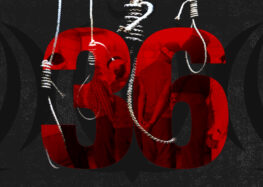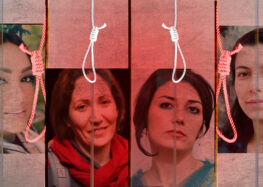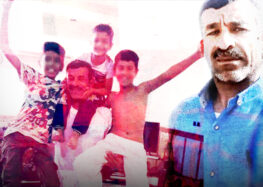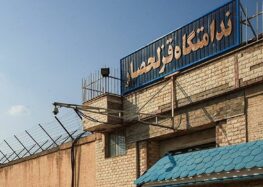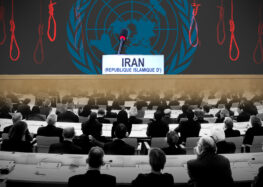Kurdish Death Row Prisoner in Iran Repeatedly Led to Believe Execution Would Be Carried Out
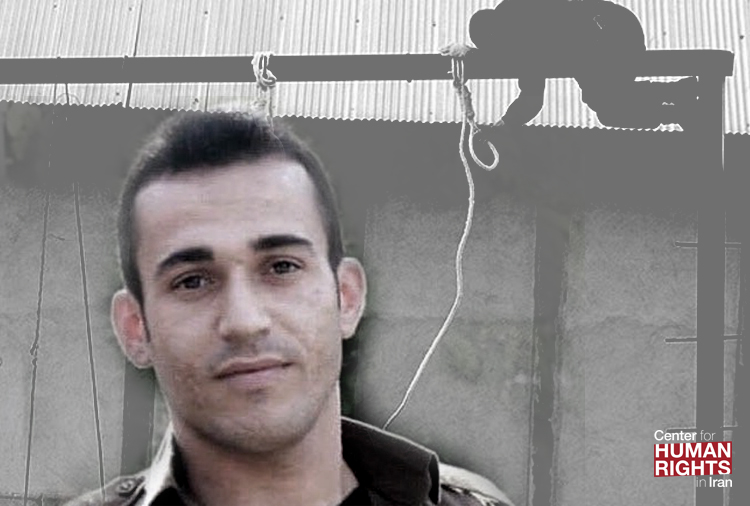
Photo: Ramin Hossein Panahi has been transferred to an unknown location possibly to face execution.
The authorities of Iran’s Sanandaj Central Prison led 24-year-old Kurdish death row prisoner Ramin Hossein Panahi to believe that he would soon be executed by initiating several procedures usually conducted before an inmate is hanged.
“We thought they were going to carry out the execution order when they took him to solitary confinement and asked his family to visit him but apparently the authorities just wanted to put him under pressure,” his attorney Hossein Ahmadiniaz told the Center for Human Rights in Iran (CHRI) on July 5.
“The past two days we were very worried about him,” Ahmadiniaz added. “His execution order has been confirmed and he could be executed at any time.”
Panahi and his family have experienced other false alarms since he was sentenced to death in January 2018 by Branch 1 of the Revolutionary Court in Sanandaj, the capital of Kurdistan Province, for his alleged membership in the outlawed Kurdish nationalist group, Komala. He has also been accused of drawing a weapon against agents of the Islamic Revolutionary Guard Corps (IRGC).
Iran’s Supreme Court upheld the sentence in April and his execution was scheduled for May 3 but was postponed after international outcry by the United Nations and rights organizations. Panahi’s request for a case review was then rejected by Iran’s Supreme Court, leaving him in danger of imminent execution.
The UN’s special rapporteur on extrajudicial, summary or arbitrary executions, Agnes Callamard, has cited concerns that Panahi was denied access to a lawyer, a fair trial, and that he was mistreated and tortured in detention.
CHRI has called on the Iranian judiciary to cease politically motivated executions, stop violating international standards of due process, and guarantee the rights of detainees to counsel of their choice as well as a fair trial in line with UN standards.
“Ramin contacted me from prison today [July 5] and said that he had been returned to a public ward but he’s not feeling well,” said Ahmadiniaz. “Our worries from the past two days are over but we are still concerned about the continuing pressures and the possibility that he could be executed at any moment.”
“The authorities say, ‘why is the media talking about him?’” he added. “Well, it’s because this poor soul is in prison and has no one to turn to.”
The human rights attorney expressed hope that his letters to Judiciary Chief Sadegh Larijani and President Hassan Rouhani requesting the execution order to be nullified would be accepted and Panahi would be allowed to receive treatment in a hospital for severe kidney pains.
Panahi was arrested on June 24, 2017, in Sanandaj after being wounded in an IRGC ambush allegedly against members of the Komala separatist organization. Three alleged Komala activists—Sabah Hossein Panahi, Hamed Seif Panahi, and Behzad Nouri—were killed in the attack.
Panahi has pled innocent to the charges, stating that he did not participate in any armed action nor did he reach for a weapon during the ambush.
Panahi’s death sentence for the charge of “corruption on earth” is based on Article 286 of Iran’s Islamic Penal Code, which states:
“Any person, who extensively commits felony against the bodily entity of people, offenses against the internal or international security of the state, spreading lies, disruption of the economic system of the state, arson and destruction of properties, distribution of poisonous and bacterial and dangerous materials, and establishment of, or aiding and abetting in, places of corruption and prostitution [on a scale] that causes severe disruption in the public order of the state and insecurity, or causes harsh damage to the bodily entity of people or public or private properties, or causes distribution of corruption and prostitution on a large scale shall be considered mofsed-e-fel-arz [corrupt on earth] and shall be sentenced to death.”
Article 287 lists capital punishment as a sentence for drawing a weapon as a member of an armed rebel group, “Any group that wages armed rebellion against the state of the Islamic Republic of Iran shall be regarded as moharebs, and if they use [their] weapon, its members shall be sentenced to the death penalty.”
Article 279 defines “mohareb” as someone who draws “a weapon on the life, property or chastity of people or to cause terror as it creates the atmosphere of insecurity.”
Security Forces Target and Harass Family Members
Since Panahi’s arrest, several members of his family have also been arrested. In March 2018, an Appeals Court upheld an eight-year prison sentence against his brother Afshin Hossein Panahi for the charge of “propaganda against the state” and “collaboration with a Kurdish opposition group.”
“My brother Afshin was arrested along with three other relatives on suspicion of connections with Komala but during interrogations it became clear that they have no ties with the group,” Amjad Hossein Panahi told CHRI in March 2018.
“So instead, the court sentenced him to eight and a half years in prison for his past civil activities, such as holding a Nowruz [Persian New Year] ceremony in Kurdistan [province in Iran] in 2017 and promoting Komala, a sentence that has now been upheld by the Appeals Court,” he added.
Amjad Hossein Panahi said his cousin Zubair Hossein Panahi has also been sentenced to six years in prison and his brother-in-law Ahmad Aminpanah sentenced to five years.
Ramin Hossein Panahi’s niece, Nishtiman Hossein Panahi, committed suicide in May 2018 after an intense campaign of fear and intimidation launched against the family by Iranian security forces.

